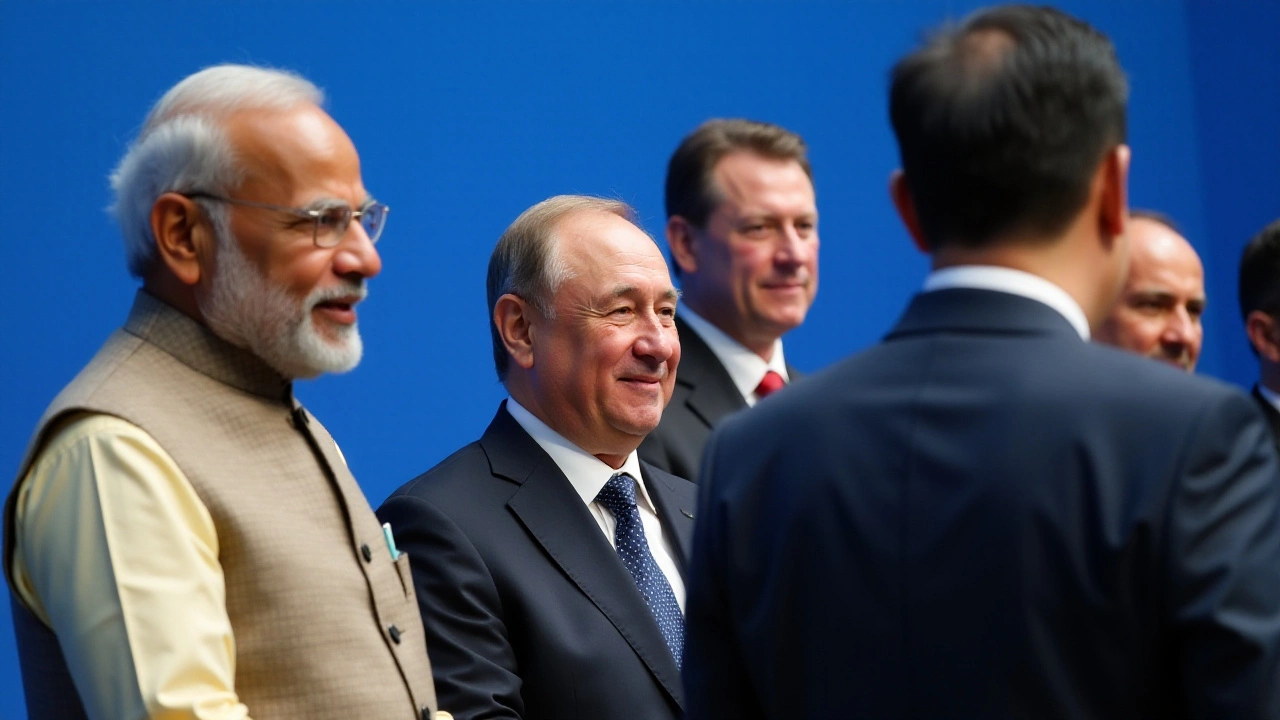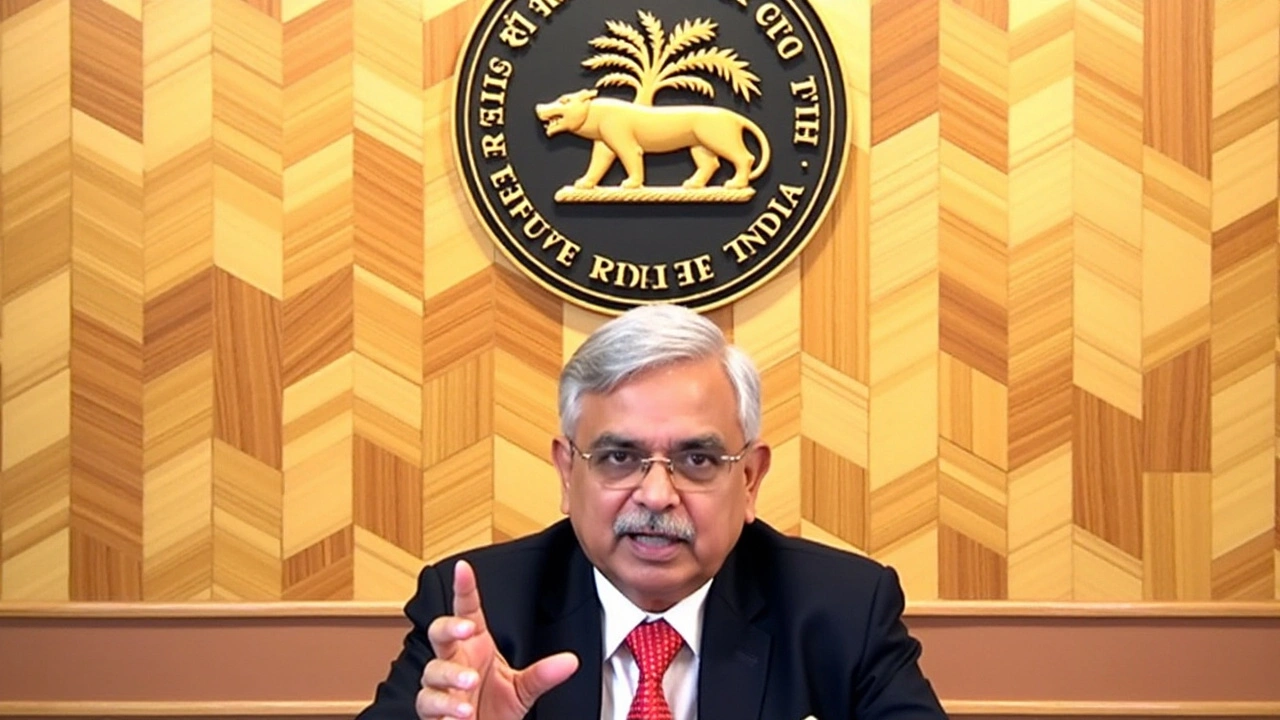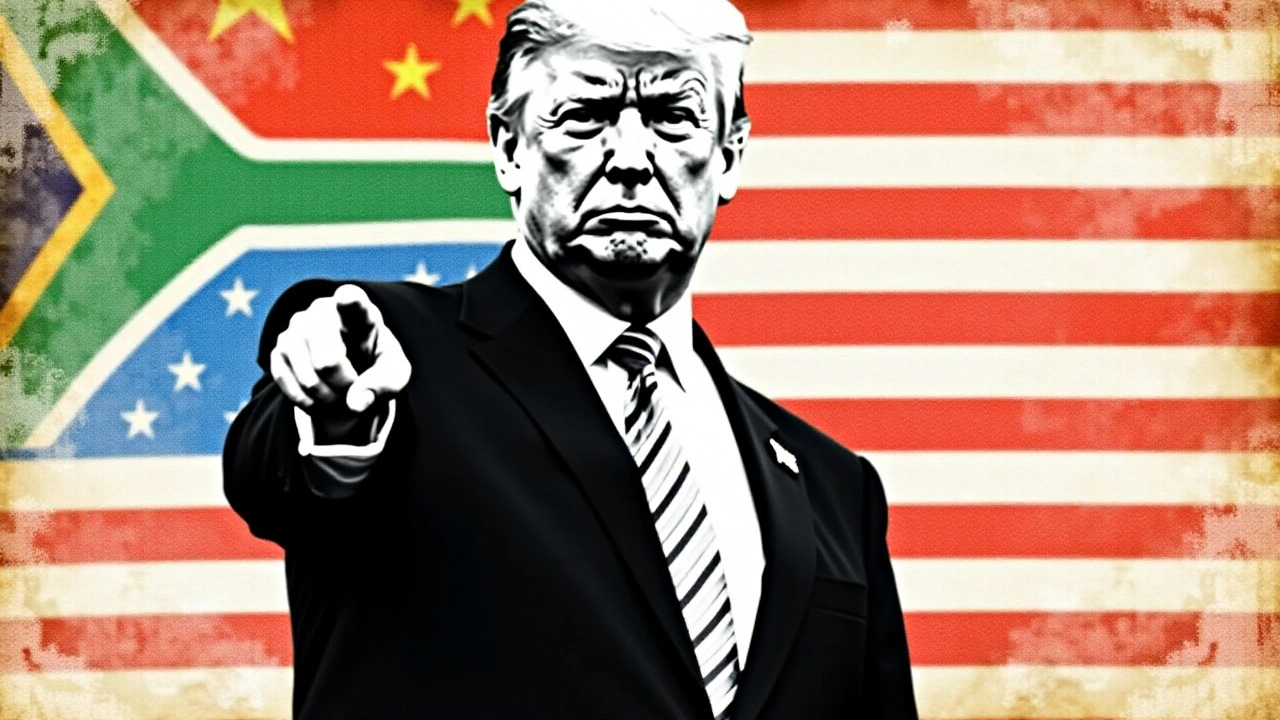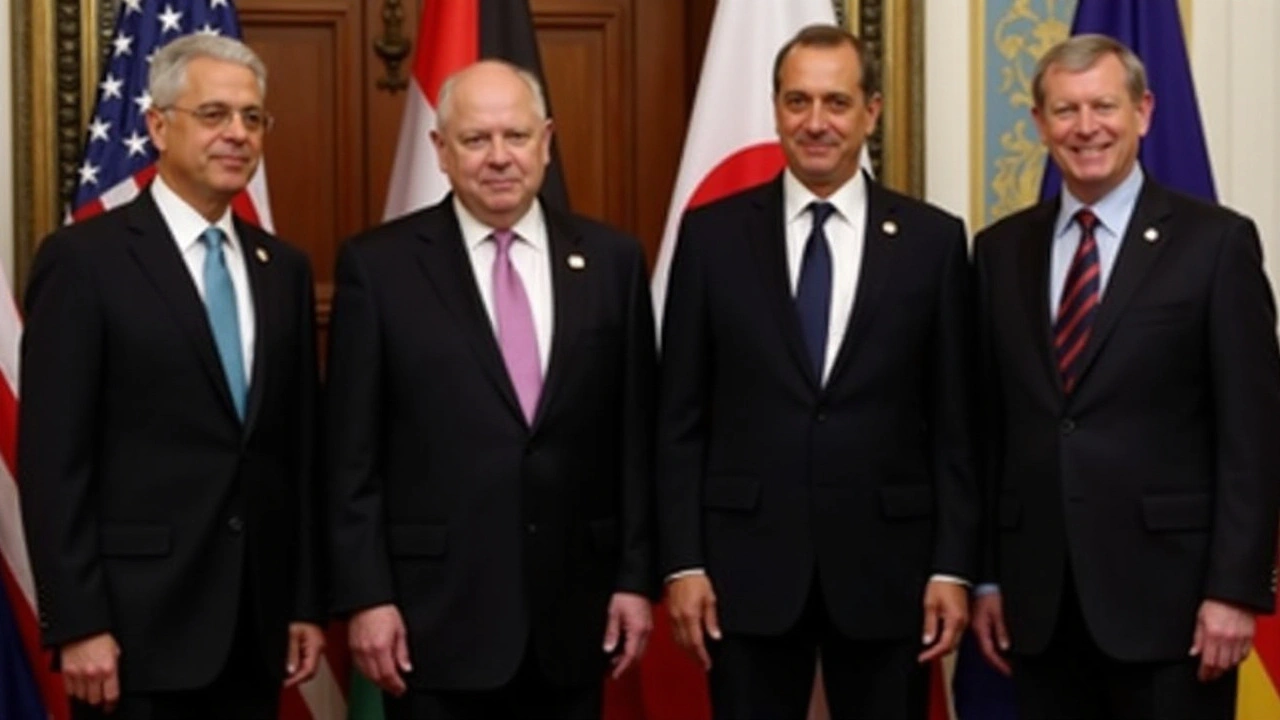Understanding Donald Trump's Concerns
Former President Donald Trump has surely stirred the pot in the global economic arena with his bold warning directed at the BRICS nations: Brazil, Russia, India, China, and South Africa. His message was clear – should these nations attempt to forge a new currency or endorse another currency to supplant the US dollar, they would be facing a massive 100% tariff and lose their foothold in the lucrative US market. While this statement might seem to put the BRICS group on alert, it appears to be more bark than bite. The conceptualization of a BRICS currency has been tossed around for some years now. Yet, it's encumbered by too many hurdles to be implemented anytime soon.
The Slow Movement Towards a BRICS Currency
The notion of a singular BRICS currency emerged from a desire to lessen the member countries' dependence on the formidable US dollar and the euro, which have long dominated global trade and finance. There have been numerous discussions and even some agreements among the BRICS members, such as the establishment of the New Development Bank (NDB) and a formidable reserve currency pool worth a staggering $100 billion. However, despite these moves on paper, the actual realization of a new currency has yet to gather meaningful momentum.

Economic Disparities and Challenges
The dream of a unified BRICS currency runs up against harsh economic realities. There is a widespread disparity in economic size and power among these nations that makes a cohesive currency a significant challenge. China's economy towers over its BRICS partners, cushioning it against economic shocks more robustly than others. Russia, on the other hand, has been economically weakened amid the ongoing war with Ukraine, reducing its sway in global finance. Discrepancies like these make the path toward a shared currency staggeringly steep.
The Importance of the International Monetary Fund
No discourse about the potential for a BRICS currency would be complete without addressing the pivotal role of the International Monetary Fund (IMF). For a currency to gain international credence and authority, substantial IMF backing is essential. Given the current geopolitical climate and the IMF's tight associations with traditionally dominant currencies, assistance to a BRICS currency is far from assured. Without this support, a new currency, even if conceived, would struggle to make an impact on the global stage.

Leader Perspectives: Putin and Lula's Views
Prominent figures such as Russian President Vladimir Putin and Brazilian President Luiz Inacio Lula da Silva have shown vocal support for the concept of a BRICS currency. Still, their speeches emphasize more on the complexities rather than any concrete operational plans. Their enthusiasm reflects a long-term vision rather than an agenda for immediate action.
Exploration of Transaction Alternatives
The BRICS nations aren’t entirely reliant on theoretical currency plans to assert economic independence. An interest in alternatives to the Swift system has grown, with BRICS exploring novel avenues like blockchain-based payment systems. Yet these technologies, while promising, are still in infant stages and do not immediately pave the way for a shared currency.

Trump's Premature Threat
From the broader perspective, Trump's threatened tariffs and exclusion from the US economy appear to anticipate a scenario far disconnected from current realities. While rattling sabers may convey political bravado, it overlooks the intricate challenges the BRICS nations continue to face in actualizing a new currency. With historical, economic, and geopolitical intricacies needing resolution, the materialization of a BRICS currency sits much further in the future.
Potential Ripple Effects
Even without a unified currency, the BRICS nations’ exploration of alternative financial structures may lead to ripples in global trade dependencies. Any new development within these economic powerhouses—whether an alternative transaction system or innovative financial policies—could subtly shift the balance of power in international trade. This change, however, will not be a sudden jolt but rather a gradual transformation reflecting the slow pace of change inherent in today’s intricate global finance world.

Vinay Upadhyay
December 7, 2024 AT 12:00Trump's bluster about slapping a 100% tariff on any BRICS currency is about as useful as a screen door on a submarine.
He apparently believes that the mere threat of tariffs can magically halt months of diplomatic and economic engineering.
But the reality, dear readers, is that the BRICS nations are still wrestling with fundamental problems like disparate fiscal policies and wildly different growth trajectories.
China's gargantuan economy dwarfs its partners, making any one-size-fits-all monetary solution look like a child’s crayon drawing.
Russia, meanwhile, is siphoning resources to fund a war that has already crippled its own financial stability.
India and Brazil are still trying to balance domestic inflation while flirting with the idea of a shared reserve fund.
South Africa, the oft‑overlooked member, faces its own credit rating woes that would scare away any investor, let alone a fledgling currency.
The International Monetary Fund, which Trump conveniently pretends to ignore, is the gatekeeper for any currency that hopes to be taken seriously on the world stage.
Without IMF backing, the BRICS currency would be nothing more than a fancy accounting trick.
Moreover, the legal frameworks required to replace the dollar in global trade are tangled in a web of treaties, sanctions, and sovereign debt obligations.
Even if Trump could magically enforce a 100% tariff, the United States would lose access to the cheap goods and strategic resources that these nations currently provide.
In practice, such a tariff would likely trigger a retaliatory trade war, driving up prices for American consumers.
So the whole ‘Trump will save us by threatening tariffs’ narrative is a classic case of political theater masking economic ignorance.
If anything, his statements spotlight the very challenges the BRICS countries must overcome before any currency can even be mentioned.
Until those hurdles are cleared, the notion of a BRICS super‑currency remains a distant, academic footnote rather than an imminent threat to the dollar.
Eve Alice Malik
December 16, 2024 AT 04:20Honestly, the whole tariff threat feels more like a reality‑TV drama than actual policy.
What’s fascinating is how the BRICS nations are quietly building financial bridges through their New Development Bank.
If they keep collaborating, the impact could be subtle but steady, kind of like a tide that reshapes the shore over time.
We should keep an eye on those blockchain experiments too; they might become the next big thing in cross‑border payments.
Debbie Billingsley
December 24, 2024 AT 20:40This is exactly why America must stay vigilant and protect its economic sovereignty.
Any attempt to undermine the dollar threatens the very foundation of our global leadership.
The BRICS agenda is nothing short of a coordinated assault on free markets.
Patrick Van den Berghe
January 2, 2025 AT 13:00Speaking of tariffs, did you know that coffee prices in Ireland have risen by 12% this year?
It really shows how interconnected everything is.
Josephine Gardiner
January 11, 2025 AT 05:20Indeed, the ripple effects of trade policies extend far beyond the immediate parties involved.
Even modest adjustments in tariff structures can influence commodity markets worldwide, affecting consumers in unexpected ways.
Jordan Fields
January 19, 2025 AT 21:40Trump’s tariff threat is economically unrealistic.
Divyaa Patel
January 28, 2025 AT 14:00Ah, the sweet scent of grandiose fantasies wafting through the corridors of power!
When leaders speak of a unified BRICS coin, they’re really conjuring a mirage painted in neon hues of ambition.
Yet beneath that dazzling façade lie the stark, cold realities of divergent fiscal health, political will, and sheer logistical nightmare.
China, the colossus, strides ahead while its partners try to keep pace on a treadmill of uneven growth.
Russia, bruised by conflict, clutches at any economic lifeline it can find, its fortunes as volatile as a tempest‑tossed sea.
India, ever the hopeful reformer, balances domestic challenges with the allure of a broader stage.
Brazil and South Africa, each with their own tumultuous histories, add further layers to this already tangled tapestry.
And let’s not forget the IMF, the gatekeeper whose endorsement could turn a pipe‑dream into a viable instrument, or crush it with a single sigh.
Even if the BRICS nations muster the political gumption, the technical scaffolding required to launch a new currency rivals the complexity of building a space shuttle.
Thus, while Trump’s bombastic warnings make for eye‑catching headlines, they gloss over the intricate dance of economics, diplomacy, and sheer inertia that defines this saga.
In the end, the most profound shifts may come not from a single coin, but from incremental reforms and resilient cooperation.
Larry Keaton
February 6, 2025 AT 06:20Yo Divyaa, love the poetic vibe but lemme drop some real talk – this whole BRICS coin thing? It’s still in the sandbox.
We’re all waiting for the big players to actually pull the trigger, not just talk about it on Twitter.
And btw, the US ain’t just standing still – we got our own tech and finance moves in the works, so slippin’ into a new currency won’t be as easy as they think.
Liliana Carranza
February 14, 2025 AT 22:40Every challenge is a chance to grow stronger, and the global financial landscape is no different.
Let’s channel our energy into building resilient partnerships, investing in innovation, and fostering inclusive growth.
Together, we can turn uncertainties into opportunities and stay ahead of the curve.
Jeff Byrd
February 23, 2025 AT 15:00Oh sure, because cheering on ‘inclusive growth’ totally neutralizes the fact that a giant super‑currency could still shake things up.
But hey, keep the pep talks coming while the real economics do their thing.